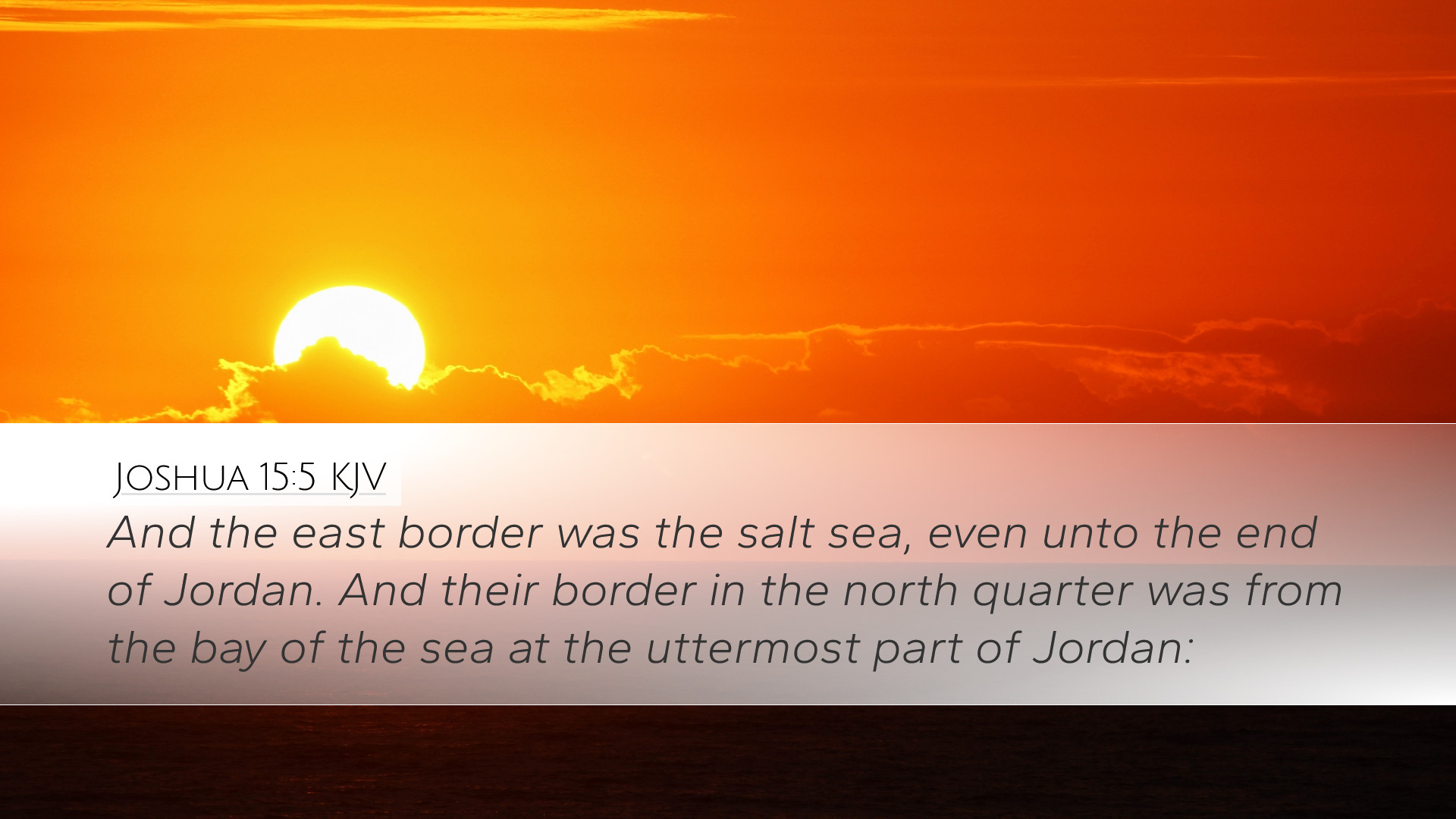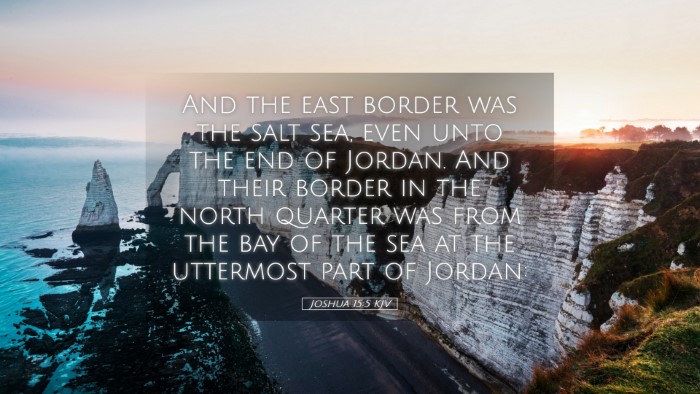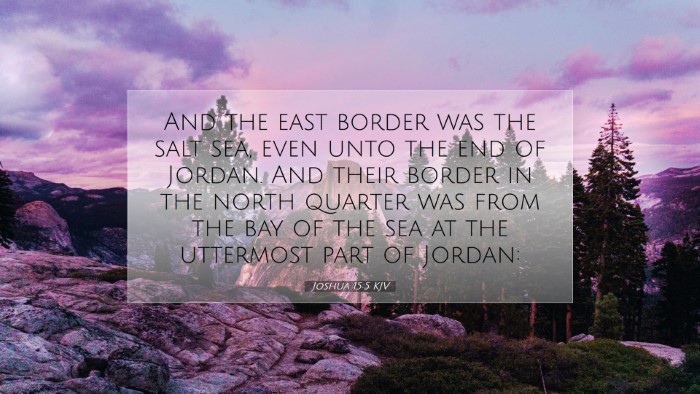Bible Commentary on Joshua 15:5
Joshua 15:5 states: "And the east border was the salt sea, even unto the end of Jordan. And the border in the north quarter was from the bay of the sea at the river Jordan."
Contextual Background
In the Book of Joshua, the division of land among the tribes of Israel is a significant event that reflects God's promise and faithfulness. This particular verse is related to the boundaries of the inheritance of the tribe of Judah, which is outlined as a fitting record of divine order and the fulfillment of God's promise to Israel.
Meaning of the East Border
According to Matthew Henry, the mention of the "east border was the salt sea" signifies the expansiveness and the notable geographical feature of the region. The salt sea, known today as the Dead Sea, symbolizes desolation yet is emblematic of God’s control over creation. It serves as a boundary that not only delineates territory but also acknowledges the harshness present in that part of the land.
The Importance of Borders
Albert Barnes emphasizes the significance of borders in biblical literature as indicators of stability and identity. Borders delineate the inheritance of each tribe and signify the faithfulness of God's promise to Israel. Borders are not merely lines on a map; they represent divine provision and the inheritance of blessings.
-
Identity:
This land is a part of Israel’s identity as God's chosen people. The borders serve as a constant reminder of their covenant relationship with the Lord.
-
Stability:
Defining boundaries aids in establishing stable governance within the tribes, allowing them to function as separate but unified entities under God's authority.
Geographical Insights
Adam Clarke provides a detailed analysis of the geographical features mentioned in this verse. The "end of Jordan" refers to the confluence where the Jordan River meets the Dead Sea. This site carries profound significance, as it is connected to Israel's historical events, emphasizing God’s sovereignty in guiding His chosen people and their conquests.
The Symbolism of the Salt Sea
Henry notes that the salt sea does not just serve a geographical purpose but also reflects a spiritual allegory. The salt sea, being inhospitable and devoid of life, symbolizes the consequences of disobedience to God. In contrast, the lands adjacent to it are fertile and live-giving, beckoning the Israelites to remain faithful.
Implications for Modern Believers
This scripture has significant implications for today's followers of Christ. It serves as a reminder of God’s faithfulness in providing spiritual territory—our inheritance in Christ. The precision in identifying borders encourages believers to seek clarity and purpose within the boundaries God sets for our lives.
-
Covenantal Faithfulness:
Just as God faithfully delineated the land for His people, He has set boundaries in our lives to ensure we walk in His purposes.
-
Spiritual Milestones:
Recognizing God's provision gives us anchor points in our spiritual journeys, reminding us of His guidance and faithfulness through the ages.
-
Call to Obedience:
We are called to honor the boundaries God sets for us, as they are not meant to restrict joy, but to provide safety and fulfillment in our relationship with Him.
Conclusion
Joshua 15:5 serves as a potent reminder of God's faithfulness in providing for His people. It encapsulates the essence of divine inheritance, the importance of boundaries, and the ongoing narrative of God's covenant with Israel that extends into the lives of all believers today. As we meditate on this verse, let us seek to understand the depths of God's guidance in our own lives, reflecting on how He marks our paths with His promise and love.


